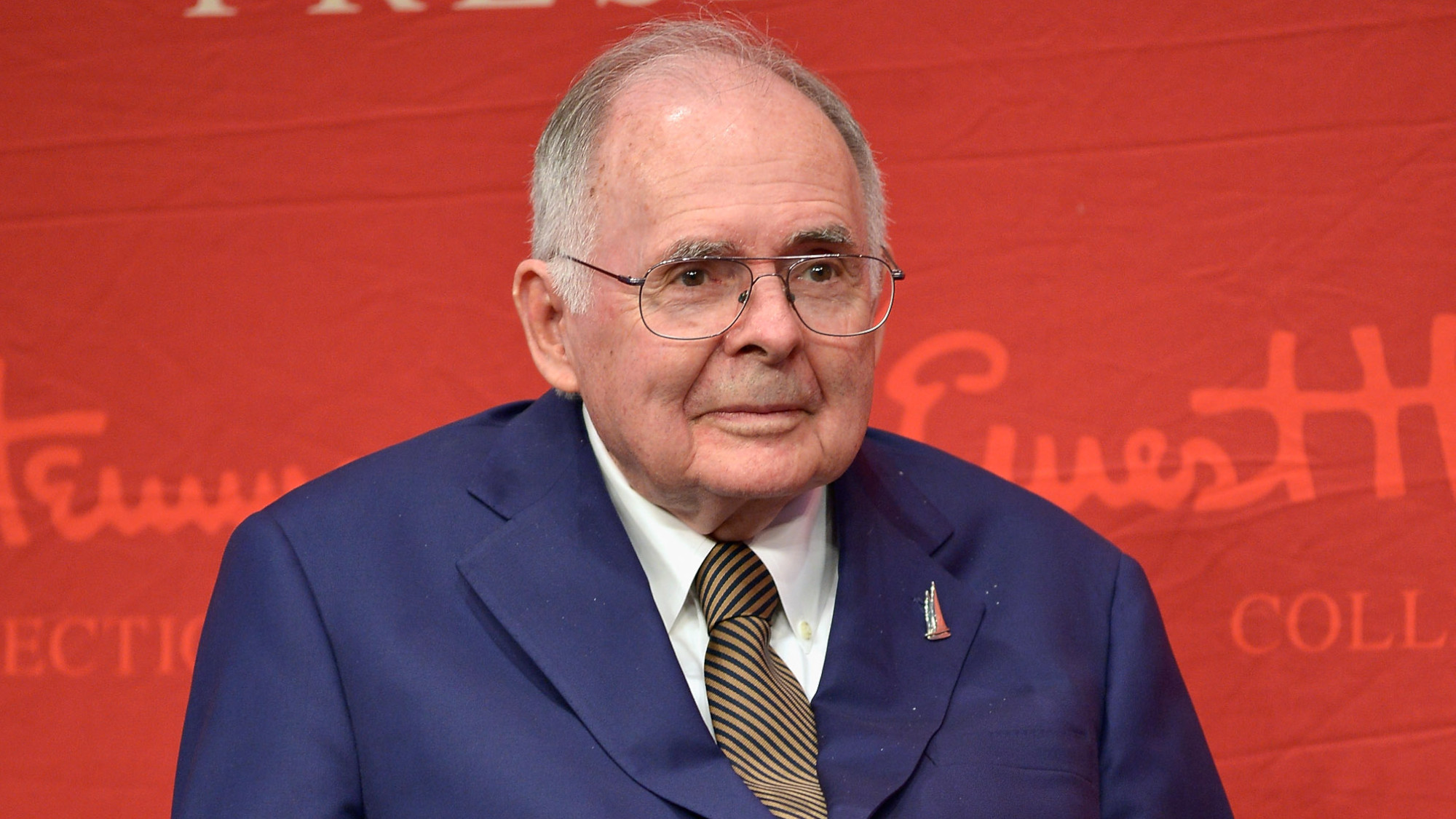Gérard de Villiers, 1929–2013
The spy novelist who spun tales from real sources
A free daily email with the biggest news stories of the day – and the best features from TheWeek.com
You are now subscribed
Your newsletter sign-up was successful
Gérard de Villiers was one of France’s most popular novelists, but his country’s leaders turned up their noses at his sex-packed spy tales—while secretly poring over their well-sourced details. “The French elite pretend not to read him,” said former Foreign Minister Hubert Védrine. “But they all do.”
De Villiers, the son of a notorious womanizer, was raised by his mother and two sisters, said Le Monde (France). As a foreign affairs reporter during the 1950s, he built up a source network among intelligence officials and diplomats. After Ian Fleming died in 1964, an editor friend urged him to “take over.” De Villiers took three characters he knew—a French intelligence official, a German baron, and an arms dealer—and by “knitting their DNA” together created Malko Linge, aka S.A.S., an Austrian aristocrat who spied for the CIA. “No one would have taken a Frenchman seriously,” he explained. “Besides cheese and wine, nothing about us is credible abroad.”
His first book, S.A.S. in Istanbul, was a hit in 1965, said The Daily Telegraph (U.K.), and de Villiers went on to write 200 S.A.S. novels, selling some 100 million copies worldwide. He called his books “fairy tales for adults,” but they were often “eerily prescient” about geopolitical events. In 1980, de Villiers wrote about the assassination of Egyptian President Anwar Sadat a year before it happened. Last year’s The Madmen of Benghazi chronicled jihadist activity in that Libyan city six months before Islamist radicals killed U.S. Ambassador Christopher Stevens there.
The Week
Escape your echo chamber. Get the facts behind the news, plus analysis from multiple perspectives.

Sign up for The Week's Free Newsletters
From our morning news briefing to a weekly Good News Newsletter, get the best of The Week delivered directly to your inbox.
From our morning news briefing to a weekly Good News Newsletter, get the best of The Week delivered directly to your inbox.
De Villiers “became a kind of drop box for real-world secrets” from the world’s spy agencies, said The New York Times, and he cast his novels with fictional versions of spooks he had met. His routine was arduous: He would spend two weeks in whatever country he was writing about, and then six weeks writing each book, churning out four or five a year. He dreamed of S.A.S. becoming a Hollywood icon like James Bond, and his lasting regret was that his books were so little known outside his homeland. “I bear the curse,” he once said, “of being French.”
A free daily email with the biggest news stories of the day – and the best features from TheWeek.com
-
 The ‘ravenous’ demand for Cornish minerals
The ‘ravenous’ demand for Cornish mineralsUnder the Radar Growing need for critical minerals to power tech has intensified ‘appetite’ for lithium, which could be a ‘huge boon’ for local economy
-
 Why are election experts taking Trump’s midterm threats seriously?
Why are election experts taking Trump’s midterm threats seriously?IN THE SPOTLIGHT As the president muses about polling place deployments and a centralized electoral system aimed at one-party control, lawmakers are taking this administration at its word
-
 ‘Restaurateurs have become millionaires’
‘Restaurateurs have become millionaires’Instant Opinion Opinion, comment and editorials of the day
-
 Catherine O'Hara: The madcap actress who sparkled on ‘SCTV’ and ‘Schitt’s Creek’
Catherine O'Hara: The madcap actress who sparkled on ‘SCTV’ and ‘Schitt’s Creek’Feature O'Hara cracked up audiences for more than 50 years
-
 Bob Weir: The Grateful Dead guitarist who kept the hippie flame
Bob Weir: The Grateful Dead guitarist who kept the hippie flameFeature The fan favorite died at 78
-
 Brigitte Bardot: the bombshell who embodied the new France
Brigitte Bardot: the bombshell who embodied the new FranceFeature The actress retired from cinema at 39, and later become known for animal rights activism and anti-Muslim bigotry
-
 Frank Gehry: the architect who made buildings flow like water
Frank Gehry: the architect who made buildings flow like waterFeature The revered building master died at the age of 96
-
 R&B singer D’Angelo
R&B singer D’AngeloFeature A reclusive visionary who transformed the genre
-
 Kiss guitarist Ace Frehley
Kiss guitarist Ace FrehleyFeature The rocker who shot fireworks from his guitar
-
 Robert Redford: the Hollywood icon who founded the Sundance Film Festival
Robert Redford: the Hollywood icon who founded the Sundance Film FestivalFeature Redford’s most lasting influence may have been as the man who ‘invigorated American independent cinema’ through Sundance
-
 Patrick Hemingway: The Hemingway son who tended to his father’s legacy
Patrick Hemingway: The Hemingway son who tended to his father’s legacyFeature He was comfortable in the shadow of his famous father, Ernest Hemingway